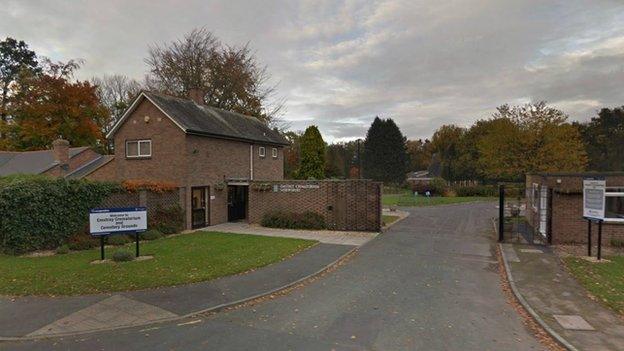Emstrey baby ashes inquiry: Who were the missing babies?
- Published
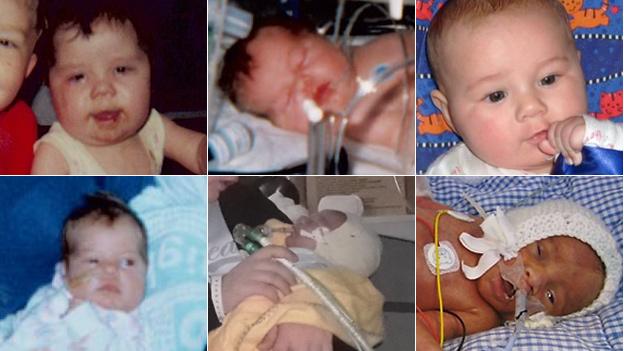
About 60 families did not have the ashes of their cremated babies returned to them
Poor training and out-of-date equipment were to blame at a crematorium which failed to return the ashes of babies to their grieving parents, an inquiry has concluded.
At least 60 families have been affected, according to an report spanning 15 years of cremations in Emstrey, Shropshire.
Its author, David Jenkins, has said the revelations made parents' grief "all the more intense" after the loss of a child.
Many of those who never received ashes have said they feel they have nowhere to mourn their children, whose remains would have been scattered in a general memorial area.
Several families have shared their stories with the BBC.

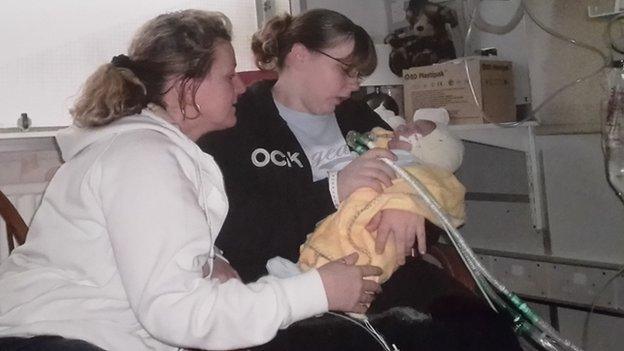
Cade Cummings died in 2004 when he was six days old. He had brain damage caused by Group B streptococcus.
Jordan Offland, Cade's mother, said he lived for 17 hours after life support machines were switched off.
"We thought when he was being cremated we'd get some ashes. We were under the belief there wouldn't be a lot of ashes but there'd be a few, only to get to the crematorium on the day of his funeral to be told there'd be none.
"We thought 'is that right?'
"We've had nowhere to go to grieve for Cade. It's never felt right - there should've been something."

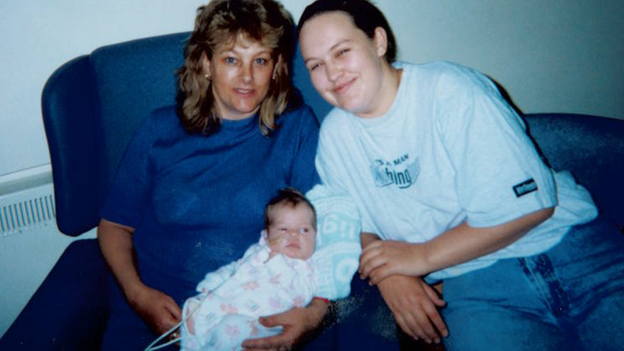
Leah Mansell died in 1998 when she was six weeks old. She had osteopetrosis and a heart defect.
After Leah contracted an infection, mother Lorraine Pugh was told her daughter had only 24 hours to live.
"It was life-changing," she said.
"I was 18 at the time and I don't think you ever heal from it.
"The night before the funeral we were told we would have no ashes.
"My mum then phoned the crematorium and went ballistic at them.
"They just turned around and said they'd like to think the body follows the soul."
"We opted for a cremation because we wanted to bring her home."

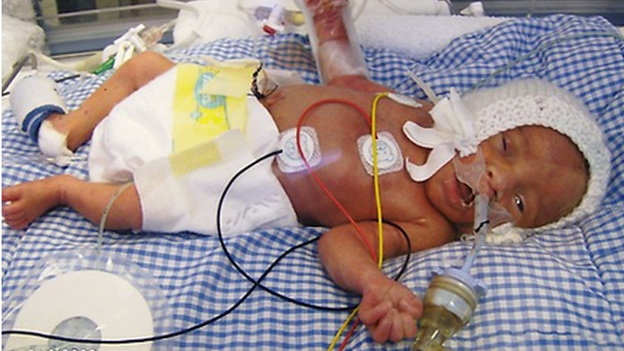
Harry Adams was four days old when he died in 2009.
His mother Rebecca Adams had suffered 18 miscarriages before giving birth to him.
"We were told he wasn't going to live for much longer," she said.
"He got put into a single room in his incubator.
"We had friends and family with us. He was christened and passed away shortly afterwards.
"We were told that if we had him cremated there would be no remains left because he was under the age of three his bones would be too soft.
"We spoke about not having any ashes back but we didn't like the idea of having him buried."

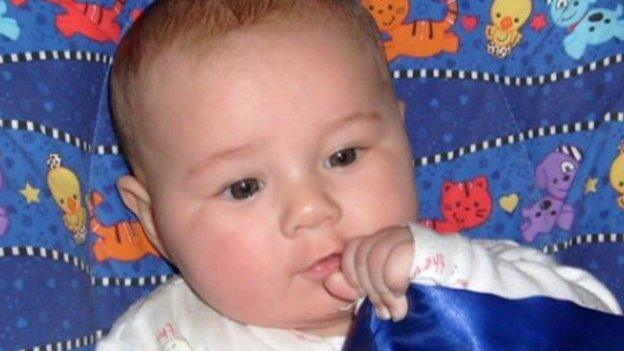
Olivia Perkins was four months old when she died from Sudden Infant Death Syndrome in 2007.
Father Glen said Olivia was giggling and laughing before bedtime.
"That's the last we saw of her alive," he said.
"I felt a sense of failure, I couldn't bring my baby back to life.
"My wife wanted her to be cremated, so we decided that would be best for our daughter.
"We asked if we could have the ashes because we wanted them made into a bracelet or a ring. It was then that we were told there wouldn't be any ashes, not even a teaspoonful.
"We couldn't believe it.
"We don't have a grave to go to. All we have left of her is the pictures on our wall."


Lewis Prior died in 2004 at the age of two and a half. He was waiting for a heart transplant.
His father Colin said his son was full of fun, only held back by his heart condition.
"He had three heart attacks in four days waiting for a transplant. He was on a life support machine. We decided to turn it off with everyone there.
"We asked about ashes and we were told it would be unlikely there'd be any.
"I feel angry, it's been ten years since Lewis died. We're going through the grieving process all over again."


Twins Dylan and Courtney Allum died in 2002 after they were born prematurely
Their mother Ruth Allum said her family was told by the undertaker on the evening before the cremation that they may be unable to recover the ashes.
"We didn't have a lot of time to decide what to do.
"We thought there were two of them, so that would give us a better chance of getting something back.
"So we went ahead simply because it was the following day and we didn't want them to be buried.
"We believed we would get something back, we thought we were doing the right thing."
- Published9 December 2014
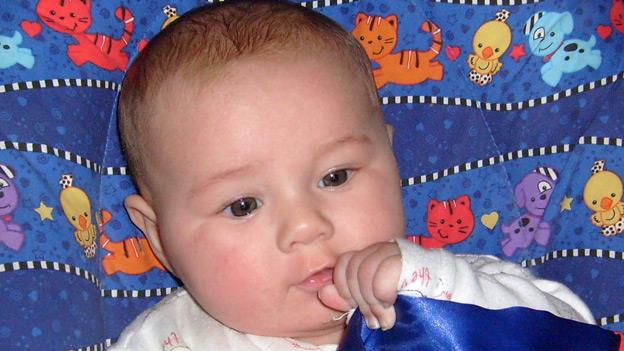
- Published7 April 2015
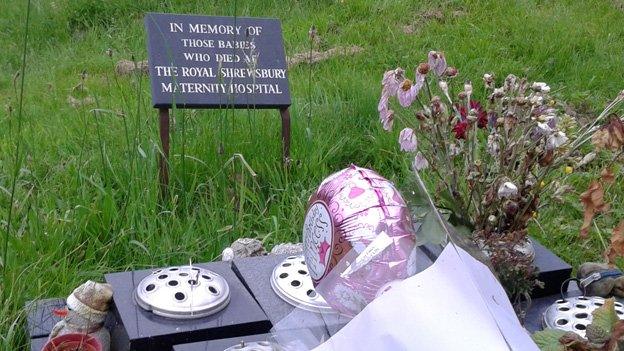
- Published7 March 2015
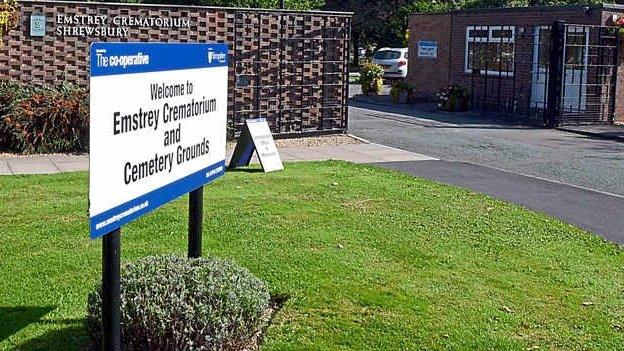
- Published10 February 2015
